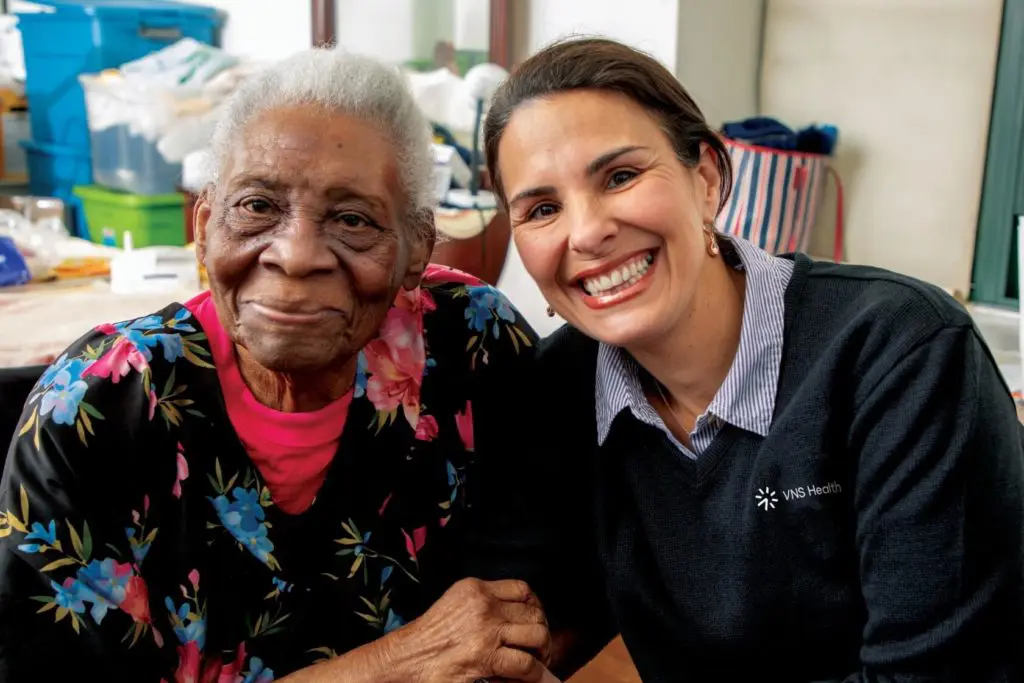
VNS Health nurses can provide many types of support to you or your loved one. They're prepared to handle any situation. Each home care nurse is licensed and registered to work in the state of New York and receives extensive training to best respond to your care needs.
Our nurses are here to put your mind at ease. They're prepared to handle any situation so caring for yourself or your loved is one easier. Whether you need short-term support following a hospital stay or ongoing care, we’re here for you.
We offer two types of in-home nursing:
Home Care Nursing Services
Home care nursing services are for people who are recovering from a major health event like surgery or a hospital stay. The goal is to help you or your loved one recover and avoid returning to the hospital. Home care is usually covered by insurance and requires a referral from a doctor, nurse practitioner, or physician assistant.
Home care nursing services include:
- Wound care, as part of home care visits
- Medication management
- Monitoring your recovery
- Teaching you and your family how to care for you at home
Home care services are available in:
Available in all five boroughs of New York City, Long Island, and Westchester County
Coverage
- Home care services are usually covered by Medicare, Medicaid, or private insurance
Private Duty Nursing
This option is for people who want more flexible care or services that insurance doesn’t cover. Private nursing care can be arranged for as many hours as you need.
Private duty nurses can help with:
- Complex care like infusions or wounds between a home care nurse visits
- 24/7 nursing at home
- Medical tasks that family members aren’t comfortable handling
It can also bridge the gap when you’re waiting for insurance-covered care to start, and can give you peace of mind if you want additional help after your covered care ends.
Private duty nursing services are available in:
- All five boroughs, Long Island, Westchester, and Rockland counties
Coverage
- Paid for privately (not covered by insurance)
What's the Difference Between Home Care & Private Duty Nursing?
| Home Care Nursing | Private Duty Nursing | |
|---|---|---|
| Nurse Availability | Scheduled Visits | On-Demand or Live-In |
| Hours per Week | Limited | Flexible, up to 24/7 |
| Customization | Based on medical need | Based on personal preference and need |
| Covered by Insurance | Yes | Often No |
What to Expect from a VNS Health Nurse
With more than 130 years of experience caring for New Yorkers, VNS Health understands what it takes to provide excellent care at home.
Our nurses bring clinical skill as well as kindness and support.
You can expect your nurse to:
- Monitor your recovery and adjust your care as needed
- Teach you and your caregivers how to manage your care at home
- Work closely with your doctors
Get Started with In-Home Nursing
The first step to getting the right kind of care is to speak with your health care provider. If they think you need care, they will work directly with us to arrange your care. They can use our online referral form or learn more about the referral process.
Whether you want to discuss your options or start private nursing care at home, call our Personal Care team at 1-888-735-8913.
Related Services
Geriatric Care Management
When you need more help than a health care escort can provide, geriatric care management is a supportive next step.